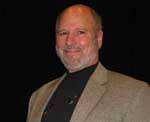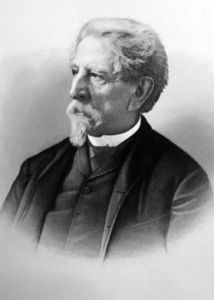
National Public Radio reported a story that was frankly, flabbergasting, a big word meaning — you have got to be kidding.
An office within the University of Southern California’s School of Social Work says it is removing the term “field” from its curriculum because it may have racist connotations related to slavery.
The newly renamed Office of Practicum Education, formerly known as the Office of Field Education…is making the change in order to be more inclusive, according to a memo sent out to faculty and students this week and obtained by NPR.
“This change supports anti-racist social work practice by replacing language that could be considered anti-Black or anti-immigrant in favor of inclusive language,” the memo reads. “Language can be powerful, and phrases such as ‘going into the field’ or ‘field work’ may have connotations for descendants of slavery and immigrant workers that are not benign.”
I sympathize with improving language and communications by removing intentional and unintentional cultural language that is vague, imprecise, or intended to cause injury. Banning the word “field” because it may cause emotional distress to someone who might have had links to American Slavery that ended 158 years ago seemed a bridge too far. A horrific civil war, almost 500,000 dead, was fought that ended the abominable, peculiar institution, American chattel slavery.
To be fair, I had to consider it. Perhaps the Office of Practicum Education was correct. Maybe the word was offensive or intended to be offensive.
I quickly listed words that were linked to “field” and asked myself are they offensive or intended to be offensive? Should they be banned?
Field of dreams
Killing Field
Cotton Field
Flower Field
Elysium Field
Football Field
Ball Field
Field Hospital
Field Work
Being a sensitive individual, I am considering writing to the Office of Practicum Education at USC and demand that very offensive words to me be removed from use.
My parents were imprisoned Jewish slave laborers for the Nazis during WWII. My father had been sold by the Germans to the French to work in the fields. My mother had been sold to a Polish factory owner in Lodz.
After being worked to near death they were sent by train for relocation to the East, to a camp where gas was part of the Final Solution.
Words like train, gas, relocation, and camp can be extremely painful to me, to many Jews. Maybe the USC’s social work school will be sensitive to our concerns. Maybe the Office of Practicum Education will change its approved language to mechanical moving device, hydrocarbon, non-environmentally friendly propulsion system fuel, and alternate accommodation facility instead of train, gas, relocation, and camp.
Two days later, the USC higher-ups convinced the Office of Practicum Education, after an avalanche of anti-woke mockery embarrassed the school deeply, to change directions.
Wokeness manifests itself in different ways. Sometimes not in very peaceful ways.
Recently, the Jewish American Society for Historical Preservation (JASHP) had the unfortunate experience of having a historical marker that had been fabricated and ready for installation turned down by a small Georgia historical society that was partnering in its placement.

Three years ago, JASHP began working to place a historical interpretive marker to reflect on the life and impact of Major Raphael Moses in Georgia. Moses, a fifth-generation South Carolinian Jew, moved to Georgia for economic opportunity in the 1840s. He was an attorney by profession but also an agriculturalist who experimented with a local waste fruit of Georgia, peaches.
Peaches have a very short ripening time between harvesting and needing to be marketed. Moses figured out a storage and transportation method in the early 1850s to preserve and ship peaches in champagne flutes long distances. Moses’ peaches were shipped to New York where they became a sensation. He proved that peaches could in fact become a major export industry for Georgia.
Moses’ business grew by nearly tenfold as the Civil War Year of 1861 began. His need for slave labor to service his peach crops grew commensurately.
Moses’ Northern peach market collapsed. He joined the Confederacy, as did many who associated with their region and state. Moses became the Chief Commissary officer to General Longstreet.
After the War, Moses returned to his law practice and worked to rebuild his devastated life. He did not return to the peach industry. Moses was elected to the Georgia House of Representatives becoming a major political leader in the state. He faced, confronted, and challenged blatant antisemitism when it arose. And through his law practice represented and defended freed slaves who needed legal help to protect their rights.
The agreed-upon text for the marker was short.
“Maj. Raphael Jacob Moses (1812-1893), a fifth-generation Jewish South Carolinian, settled in Columbus in the 1840s. A plantation owner, he was the first to develop the peach industry as a major Georgia export.
Moses and his three sons served in the Confederate military. He was a trusted friend of Gen. Robert E. Lee and Chief Commissary Officer to Gen. James Longstreet. President Jefferson Davis turned to Moses to carry out his “Last Order,” distributing the Confederate Treasury to hospitalized and impoverished returning soldiers.
Moses was later elected to the Georgia House.”
The marker was ordered, fabricated, and paid for by JASHP. It was delivered to the historical society. Before it could be installed, the George Floyd tragedy and riots occurred nationally.
The historical society asked to wait before installing the marker. Then they declined to install the marker at all.
Their concern was one word in the text – plantation. They did not argue the historical accuracy of the word. They feared, I believe, something else. The woke mobs had turned violent. The small historical society feared a marker with their name on it, as well as JASHP’s, with the one offending word would cause violence, hatred, property damage, and raging intolerance.
The marker was never installed.
William Murtagh was a historian and the first “Keeper of Records of the National Registry of Historic Places” in 1966. He wrote about the necessity for honest memory. He wrote about the destructive nihilism of woke/cancel culture before the term was invented.
“It has been said that, as its best, preservation engages the past in a conversation with the present over a mutual concern for the future.”
David Oliver, a diversity, and inclusion reporter for USA Today, warned its readers about using culturally sensitive words that may be harmful to people of other cultures, January 14, 2023.
One of the harmful words is the Hebrew word Shalom, meaning hello, goodbye or peace.
I seriously doubt Oliver has ever been to Israel. Israelis have been culturally appropriating words from all over to rebuild the Hebrew language. Some like to use Shalom, many prefer simply “hi” or “goodbye.” They generally use Shalom for their most heartfelt wish – peace.
Small wonder that antisemitism is rising again globally. The Jews are “appropriating cultures.”
Jerry Klinger is the President of the Jewish American Society for Historic Preservation, www.JASHP.org